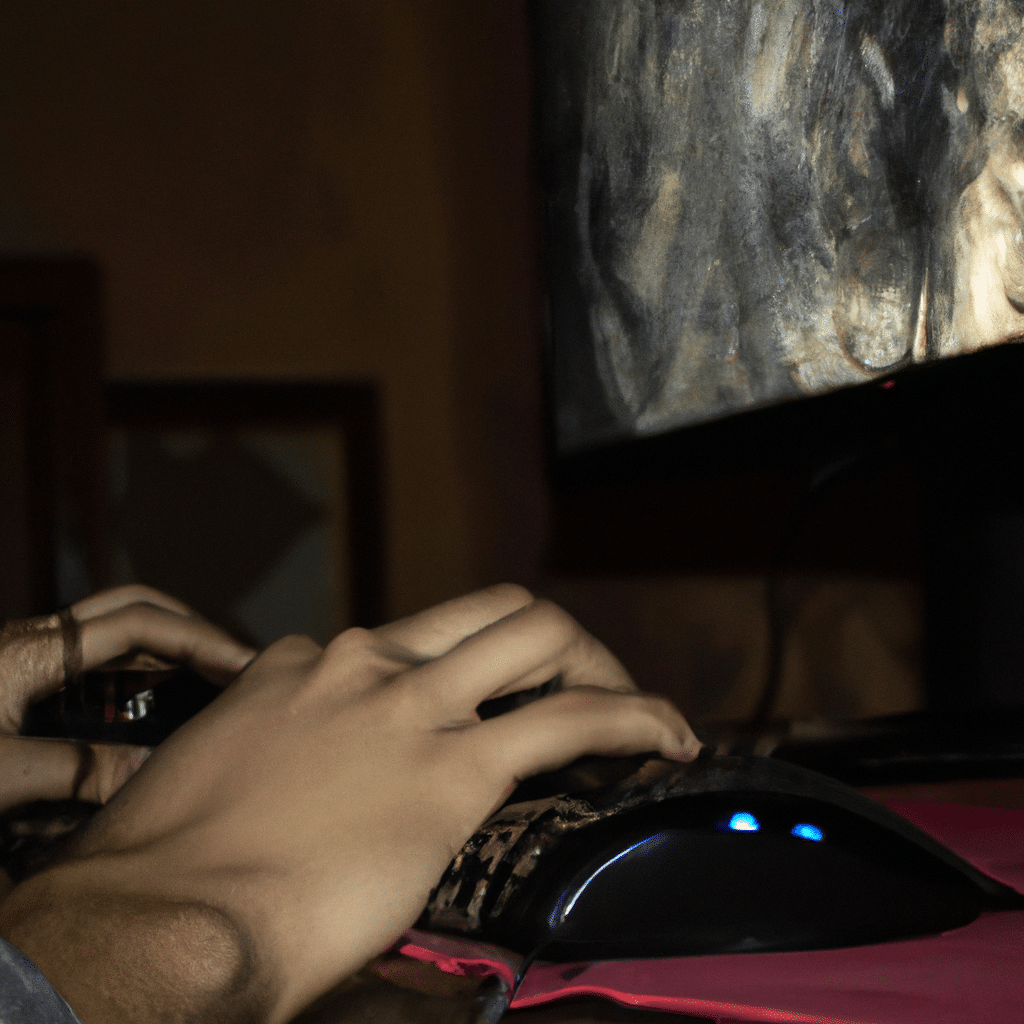Online gaming is a popular pastime enjoyed by millions of people around the world. It provides entertainment, socialization, and a means to escape from everyday life. However, like any other activity, online gaming can become addictive and cause negative consequences for a person’s mental and physical health, as well as their relationships and work.

In this article, we will explore the dangers of online gaming addiction and provide tips on how to overcome it.
What is Online Gaming Addiction?
Online gaming addiction, also known as internet gaming disorder, is a behavioral addiction that involves excessive and compulsive gaming. It is characterized by the following symptoms:
- Preoccupation with gaming
- Loss of control over gaming
- Neglect of other important activities
- Continued gaming despite negative consequences
- Withdrawal symptoms when not gaming
- Using gaming as a means to escape from problems or negative emotions
Online gaming addiction is a serious problem that can lead to a variety of negative consequences, including depression, anxiety, social isolation, and physical health problems.
The Dangers of Online Gaming Addiction
Online gaming addiction can have a significant impact on a person’s mental and physical health. Here are some of the dangers associated with it:
Mental Health
Online gaming addiction can lead to a variety of mental health problems, including:
- Depression: Excessive gaming can lead to feelings of sadness, hopelessness, and loss of interest in activities that were once enjoyable.
- Anxiety: Gaming can cause anxiety and panic attacks, especially when a person is unable to access their game or complete a level.
- Social isolation: Online gaming addiction can lead to social isolation, as a person may choose to spend more time gaming than interacting with friends and family.
- Poor academic or work performance: Excessive gaming can lead to poor academic or work performance, as a person may neglect their responsibilities in favor of gaming.
- Aggression: Some studies have linked excessive gaming to aggression and violent behavior.
Physical Health
Online gaming addiction can also have a negative impact on a person’s physical health, including:
- Sleep disturbances: Gaming can disrupt a person’s sleep cycle, leading to insomnia and other sleep disorders.
- Obesity: Excessive gaming can lead to a sedentary lifestyle, which can contribute to obesity and related health problems.
- Eye strain: Gaming can cause eye strain, dry eyes, and other vision problems.
- Carpal tunnel syndrome: Repetitive gaming motions can lead to carpal tunnel syndrome, a painful condition that affects the hands and wrists.
How to Overcome Online Gaming Addiction
If you or someone you know is struggling with online gaming addiction, there are steps you can take to overcome it. Here are some tips:
1. Acknowledge the problem
The first step in overcoming online gaming addiction is acknowledging that there is a problem. This can be difficult, as many people may not recognize that their gaming habits have become problematic.
2. Set boundaries
Once you have acknowledged the problem, it is important to set boundaries around your gaming habits. This may include limiting the amount of time you spend gaming each day, or setting specific times when you can play.
3. Seek support
Seeking support from friends, family, or a mental health professional can be helpful in overcoming online gaming addiction. They can provide encouragement, accountability, and guidance as you work towards recovery.
4. Develop new hobbies and interests
One of the keys to overcoming online gaming addiction is finding new hobbies and interests to replace gaming. This can help you fill the void left by gaming and provide a healthy outlet for your energy and creativity.
5. Practice self-care
Taking care of your mental and physical health is important in overcoming online gaming addiction. This may include getting enough sleep, eating a healthy diet, and engaging in regular exercise.
Conclusion
Online gaming addiction is a serious problem that can have negative consequences for a person’s mental and physical health, relationships, and work. It is important to acknowledge the problem and take steps to overcome it, such as setting boundaries, seeking support, developing new hobbies and interests, and practicing self-care. By doing so, you can take control of your gaming habits and improve your overall well-being.












